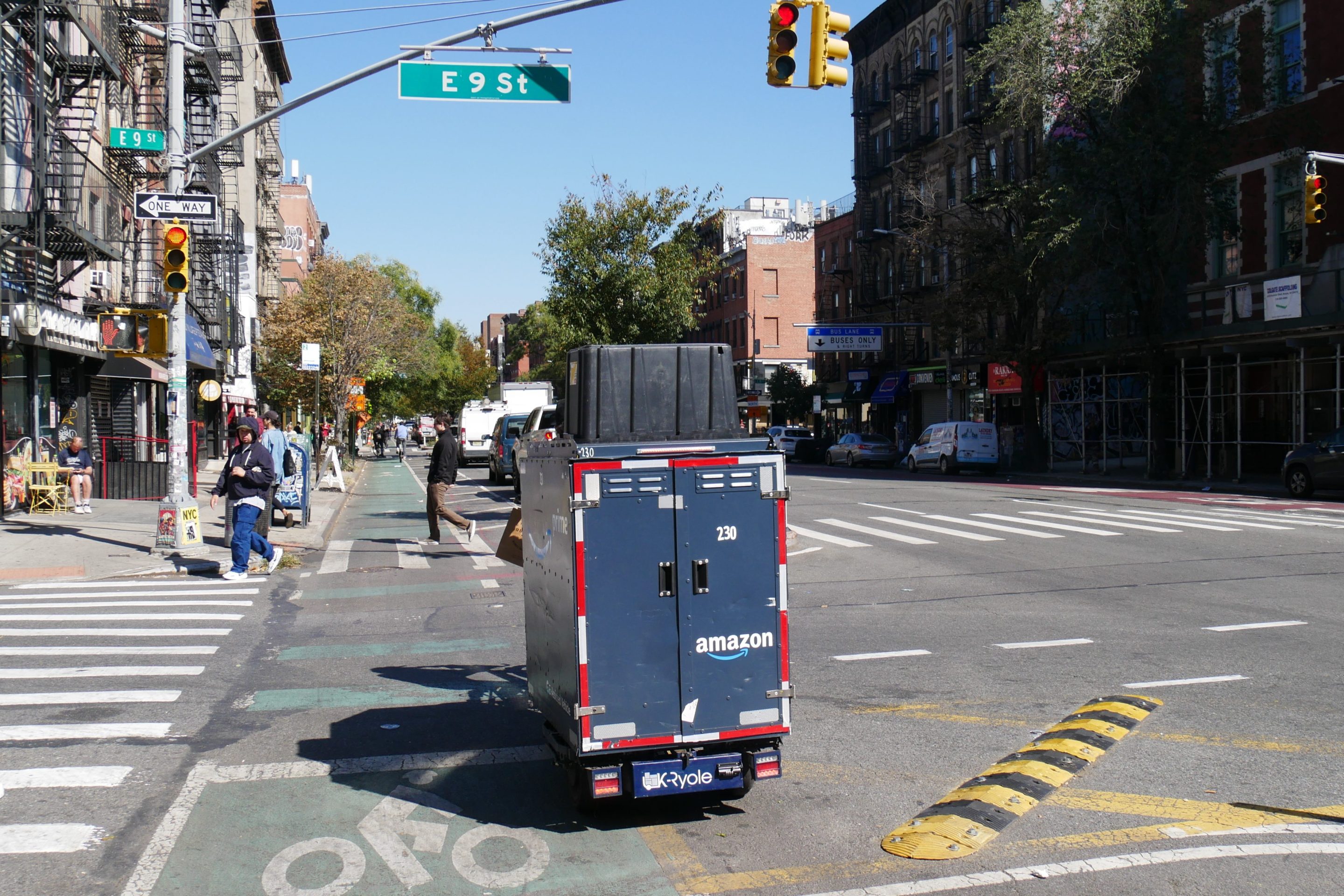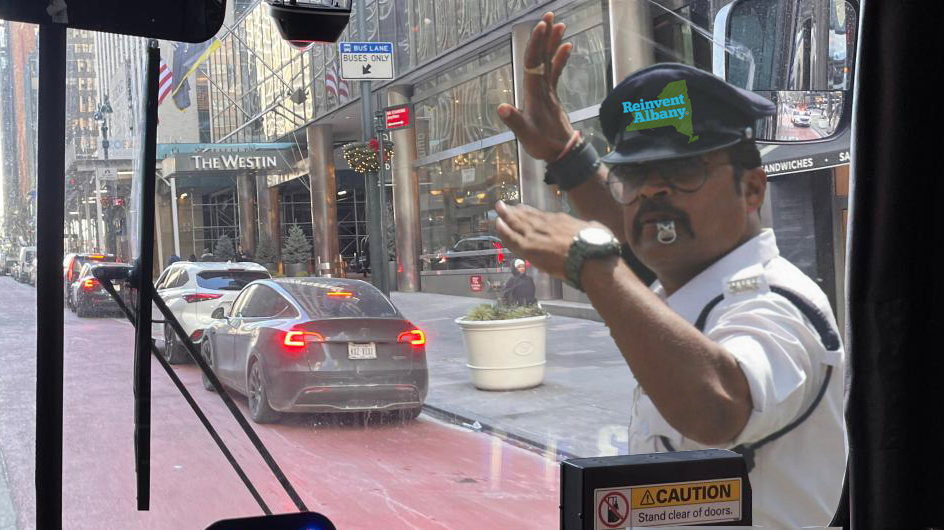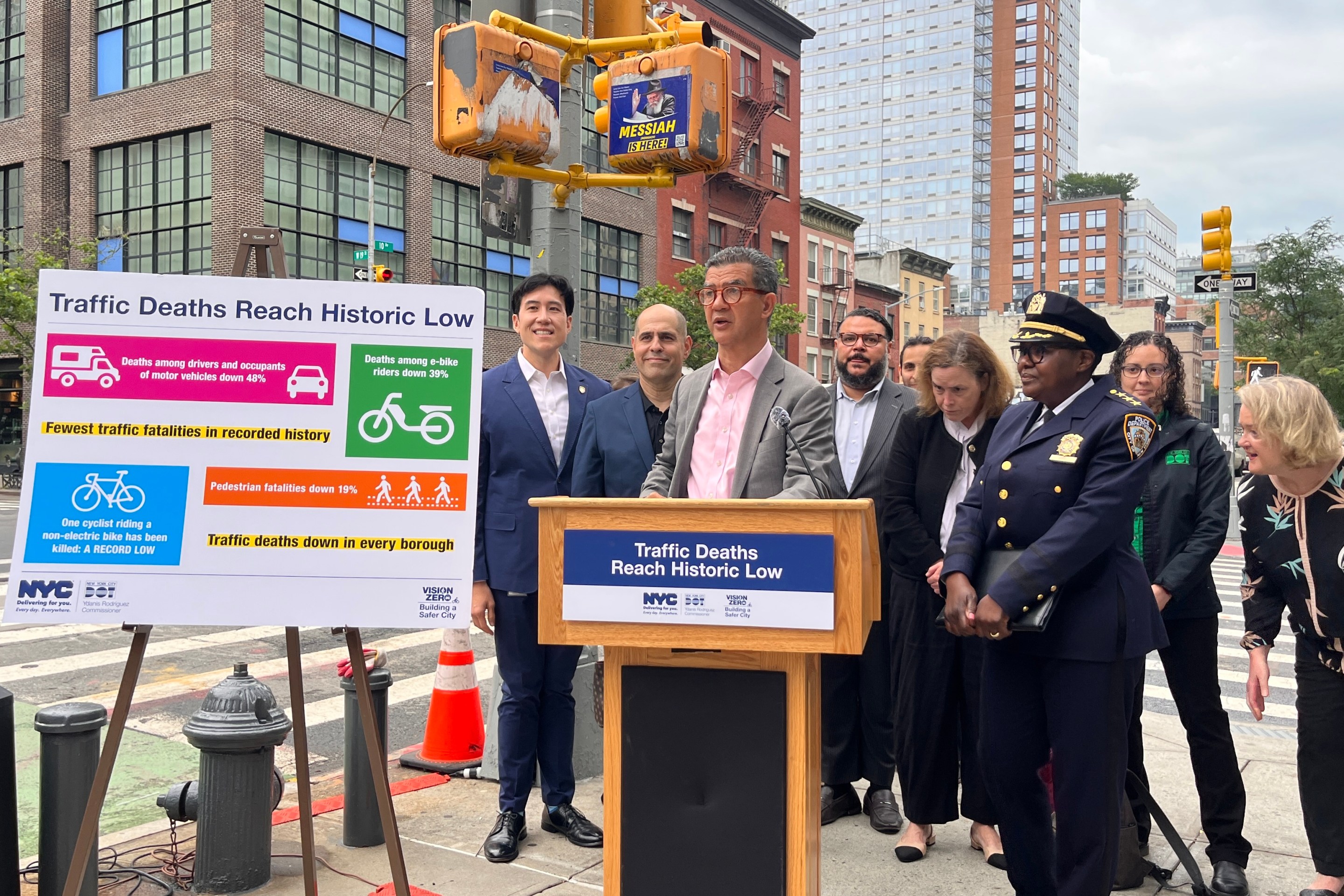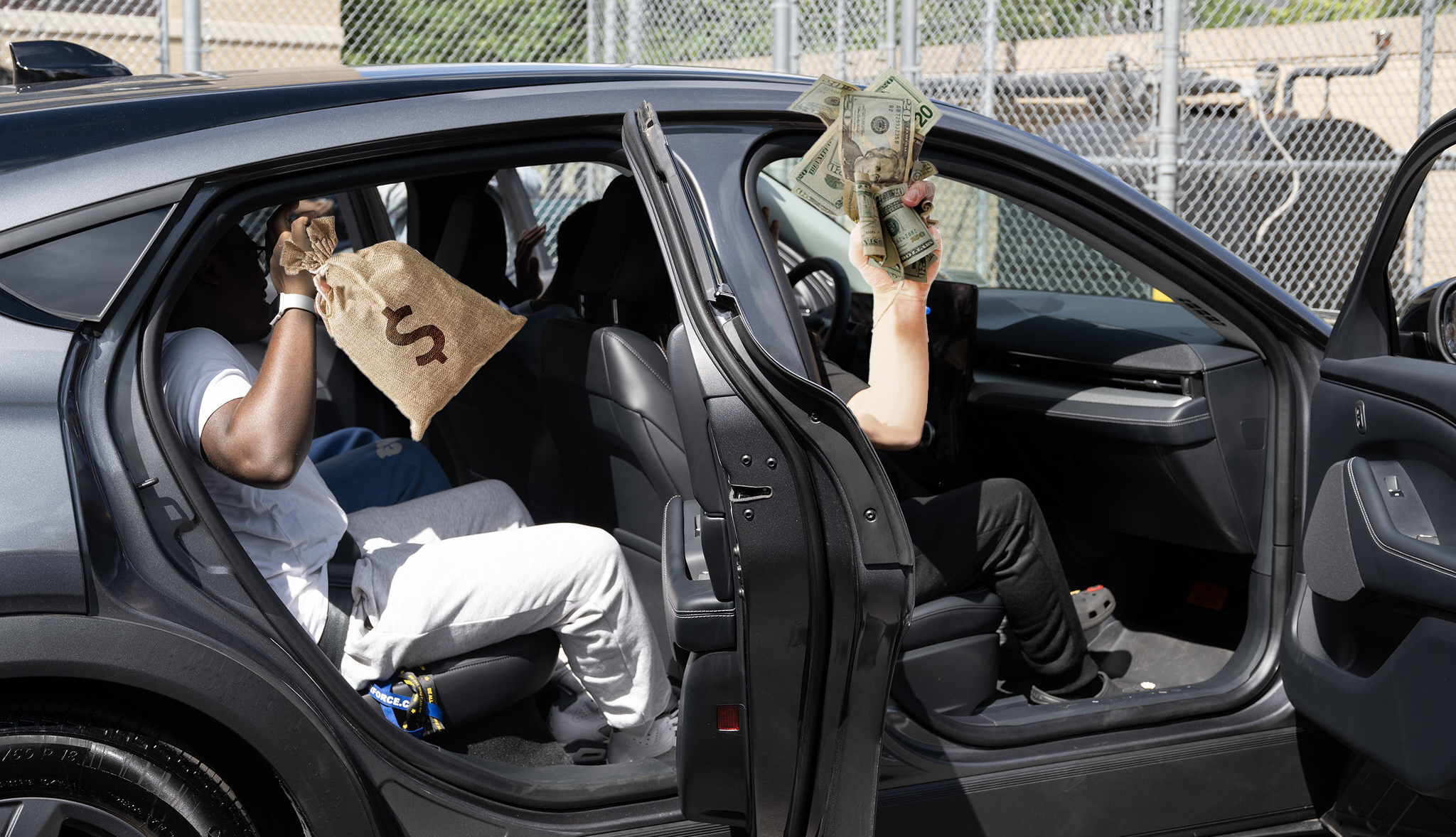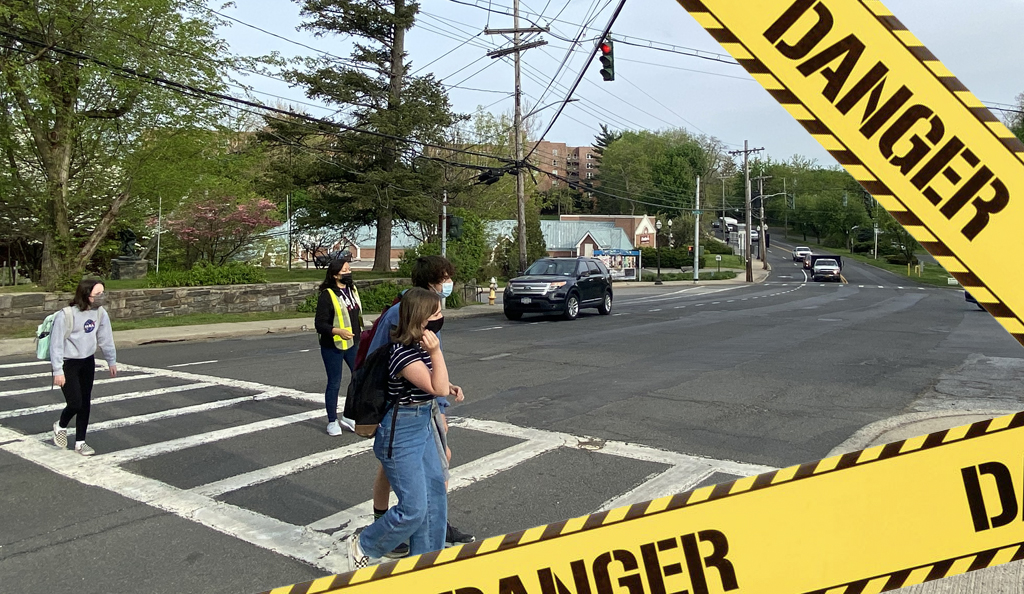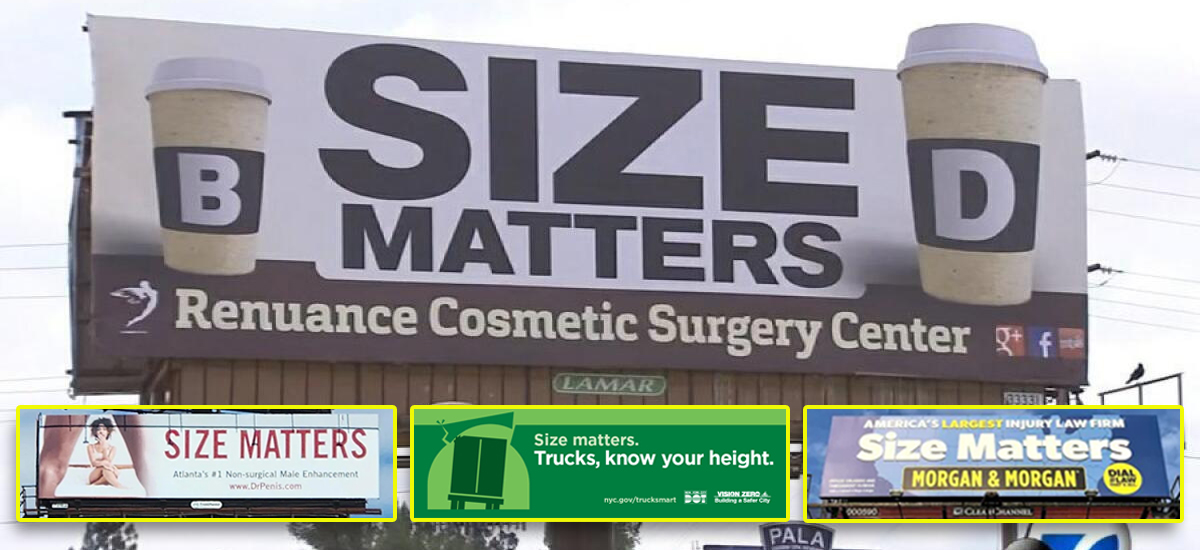Westchester Democrat Richard Brodsky is running for Attorney General this fall, leaving the seat of congestion pricing's leading opponent open. Will his successor take up Brodsky's anti-transit mantle or prove to better represent the environmental values on which Brodsky is now running for AG? We spoke with the three candidates vying to replace Brodsky in the Assembly, Democrats Tom Abinanti and Anna Sterne and Republican Tom Bock, to find out.
 Richard Brodsky was the most visible and vocal critic of congestion pricing in the Assembly.
Richard Brodsky was the most visible and vocal critic of congestion pricing in the Assembly.The 92nd district, which includes the towns of Greenburgh and Mount Pleasant along the western edge of Westchester County, is an interesting one for transportation advocates. The district covers very affluent suburbs -- including the well-off car commuting constituency that Brodsky represented so well -- but also has significant transit ridership: 15 percent of the district uses transit to get to the Manhattan central business district and a smaller group takes transit to other destinations [PDF].
One of the big issues in the district is the future of the Tappan Zee Bridge, which crosses the Hudson into the 92nd. Battered by traffic volumes it was never designed to carry, the Tappan Zee needs fixing. Debates have raged for years over whether the project should include bus rapid transit, light rail, and/or commuter rail and whether the bridge should be repaired or replaced.
Then there's the central fact of this campaign: the opposition of all the candidates to the MTA payroll tax enacted by the state legislature and Governor Paterson last spring. The payroll tax provides over a billion dollars a year to the MTA, even despite lower-than-expected revenues. When it comes to transit funding, other options could complement the payroll tax to fill in the big budget gaps that remain, but not replace it. The 2008 congestion pricing proposal was expected to raise about $420 million per year while the Ravitch Plan's bridge tolls would have netted around $600 million per year. Brodsky ultimately gave muted support for the Ravitch Plan, including the payroll tax.
That shared opposition shouldn't obscure the important differences between the candidates, though. So we offer this preview of our election coverage with a look at the race for the 92nd. (We'll have more election profiles following the release of candidate survey responses from Transportation Alternatives and the Tri-State Transportation Campaign). In addition to transit and the Tappan Zee, we asked the candidates
about automated traffic enforcement, traffic justice laws, and
pedestrian and cyclist safety. Here are their positions, presented with the primary opponents first in alphabetical order:
 Photo: NYLCV
Photo: NYLCVTom Abinanti
Tom Abinanti currently serves as the majority leader of the Westchester County Board. In that capacity, he says, he has a long history of fighting for mass transportation. Most recently, he said, he fought to maintain funding for commuter buses into New York City. "We have to recognize they serve a public purpose," he said, "so people don't drive, so you don't have to build parking garages."
Based on his record, the New York League of Conservation Voters has endorsed him and made his election in the primary a top priority. "Tom has been a real champion for re-thinking Westchester’s heavy reliance on the automobile," said NYLCV spokesman Dan Hendrick, citing Abinanti's support of the county's global warming action plan and transit-oriented development. Hendrick said that Sterne did not seek NYLCV's endorsement.
"We need to have mass transit," asserted Abinanti, "and we have to pay for it." Paying for it, however, is where Abinanti's support for transit became shakier, as was true for each candidate. If elected, he said, he would fight to repeal the MTA payroll tax: "It's forcing people to pay for something they're not using."
Abinanti did offer a hesitant statement in support of congestion pricing, however, saying "the concept was a good concept." The fact that environmental advocates supported congestion pricing in 2008 seemed to be a big factor in Abinanti's position. Even so, Abinanti would have liked to see revisions to the congestion pricing plan that came up short in 2008, including measures that would have "moderated the impact on the middle class" and the construction of more park-and-rides.
With regards to the Tappan Zee, Abinanti said his first priority is keeping the project's physical footprint as small as possible. "If they turn the bridge a certain way," he said, "they would literally destroy these homes." He pointed to the inclusion of rail and the construction of a new bridge, as opposed to repairs, as particularly worrisome to him in this regard. If the existing communities at the feet of the bridge are preserved, however, he'd like to see transit on the bridge. "We need to move people and not just cars," he said.
Abinanti expressed ambivalence over camera enforcement. "There has to be a balance between the use of technology, concern for individual rights, and then the third factor of home rule," he said.
In terms of protecting pedestrians and cyclists, Abinanti suggested that new infrastructure, not new legislation, is the best solution. "There are not a lot of holes left that need to be filled by new laws," he argued, rejecting attempts to pass laws that are tougher on dangerous drivers. In Westchester, he said, what's really needed are east-west bike paths to augment the north-south trailway system that is already in place. If elected, he promised to support additional funding for bike and pedestrian infrastructure.
He did, however, express his support for Merrill's Law, which requires drivers to maintain a three-foot distance when passing a cyclist. That law, he said, had an educational function which laws increasing penalties do not. Merrill Cassell, for whom the law was named, was killed in the 92nd District.
 Photo: Sterne campaign website
Photo: Sterne campaign websiteAnna Sterne
Anna
Sterne is a nurse and the president of the Dobbs Ferry School Board.
She grew up on Dyckman Street in Upper Manhattan, where she says she
pushed for livable streets from a young age. At ten, she said, she
petitioned Mayor Wagner for bike paths in Highbridge Park, and in high
school she became the first woman to visit every single subway
station.
Sterne saw complete streets as a transportation
priority, suggesting the state establish an incentive program for local
governments. "School districts could save money by having students walk
to school," she said, "but too many districts don't have enough
sidewalks." She also suggested providing all New York high school
students with transit passes and facilitating the creation of electric
vehicle infrastructure.
Sterne enthusiastically supported
including both commuter rail and BRT on the Tappan Zee. "This would
totally change the trip not just Rockland to Westchester, but within
Westchester," she said. She questioned why BRT across the bridge had to
wait for the bridge to be rebuilt. "I think we need it now. You could
get rid of so much car traffic."
As with the other
candidates, however, how to pay for all these improvements remains
something of a question mark. Sterne has lobbied against the MTA
payroll tax. "As a school district, it costs us a teacher," she said.
"When you look at it like that, it really is incredibly burdensome. I'd
love to see it repealed." She also argued against congestion pricing
and bridge tolls. In neighborhoods near the bridges or congestion
cordon, she worried, "That would just cause such traffic chaos."
Instead,
Sterne suggested increasing the gas tax to fund transit. "It'll be one
more incentive not to drive," she explained. "Put it on the cars."
Sterne
showed the most enthusiasm for efforts to use law enforcement to make
streets safer. "I'm a nurse," she said. "I can talk to you about car
injuries." She said she'd vote to expand camera enforcement and support
new traffic justice laws, especially those targeting drivers with
suspended licenses. "Why does that person still have a car?" she asked.
 Photo: Bock campaign website
Photo: Bock campaign websiteTom Bock
Tom Bock is a former chief of the Elmsford Fire Department and works as a systems administrator. He ran unsuccessfully for the county board last year. His campaign website prominently features his connections with the Tea Party movement.
Bock came off as a strong supporter of cyclists and pedestrians. He assailed current transportation planners, saying "they haven't accommodated biking lanes or walking lanes. Everything seems to be motorized transportation." With more bike lanes, he argued, you could reduce traffic congestion. "The supermarket I go to is a little far for walking," he said, "but I wouldn't have a problem biking there."
On most issues, however, his favored policies would increase the number of people driving. Bock called for eliminating all bridge tolls entirely. "That adds to the congestion we suffer from," he asserted. Though the elimination of both tolls and the payroll tax would take billions away from the MTA and the Thruway Authority, Bock argued that better management could recoup those losses: "What they are doing is shifting their incompetency to outside people."
Bock would oppose any Tappan Zee project that uses eminent domain. He also opposed the inclusion of transit along the bridge. "They're talking about adding a new bus every five minutes into the already congested traffic," he said. He also thought it was inappropriate to pay for new transit across the bridge while the Westchester Bee Line was cutting existing service.
Though Bock said he didn't oppose camera enforcement or stricter traffic laws, he doubted their efficacy. "At the end of the day, people who drink continue to drink and drive," he said, implying that speeding can't be deterred by enforcement.
